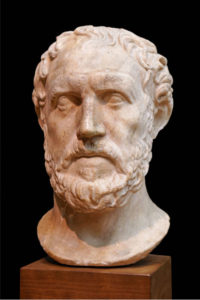Democrat officials’ opposition to Donald Trump originated during the Republican primary in dislike of his rude verbal style. When he beat heir-apparent Clinton in the election, dislike hardened into hatred. Since then, the opposition has become more and more irrational, even delusional. Every one of his kept promises and achievements, no matter how beneficial to the country, has made them angrier and more driven to destroy him.
Democrat legislators have not only refused to act on hundreds of lower court appointments. They have also shamelessly attempted to disqualify two highly qualified Supreme Court candidates and urged mob activity against the President, his staff, appointed officials, and supporters—on the streets, at malls, in restaurants, and outside their homes. Rather than make common cause with the President for the good of the nation, they demand his impeachment. Forsaking basic decency, they make a mockery of values such as “innocent until proven guilty” and respect for constitutional processes.
Simply said, by putting party loyalty and ego above love of country and responsibility to constituents, they are undermining the stability of our institutions and the safety of our citizens.
What America desperately needs is leaders who grasp the lessons and warnings of history, among them the following:
Ancient Greek historian Thucydides (460 BC – 400 BC):
[On the breakdown of Hellenic society] The customary meaning of words was arbitrarily distorted to cover the conduct of those who employed them. Reckless irresponsibility was treated as courageous loyalty… A frenzied fanaticism was the popular ideal of conduct . . . Violence of feeling was a warrant of honesty, deprecation of violence a signal for suspicion.
In a democracy, someone who fails to get elected to office can always console himself with the thought that there was something not quite fair about it.
You should punish in the same manner those who commit crimes [and] those who accuse falsely.
Words had to change their ordinary meaning and to take that which was now given them. Reckless audacity came to be considered the courage of a loyal supporter; prudent hesitation, specious cowardice; moderation was held to be a cloak for unmanliness; ability to see all sides of a question incapacity to act on any. Frantic violence became the attribute of manliness; cautious plotting a justifiable means of self-defense. The advocate of extreme measures was always trustworthy; his opponent a man to be suspected.
Edward Gibbon (1737-1794)
When the Athenians finally wanted not to give to society but for society to give to them, when the freedom they wished for most was freedom from responsibility, then Athens ceased to be free and was never free again.
Christopher Dawson (1889-1970)
It seems as though a new society was arising which will acknowledge no hierarchy of values, no intellectual authority, and no social or religious tradition, but which will live for the moment in a chaos of pure sensation.
A society which has lost its religion becomes sooner or later a society which has lost its culture.
As soon as men decide that all means are permitted to fight an evil, then their good becomes indistinguishable from the evil that they set out to destroy.
Arnold Toynbee (1852-1893)
The horizontal schism of a society along lines of class is not only peculiar to civilizations, but is also a phenomenon which first appears at the moment of breakdown, and which is a distinctive mark of the phases of breakdown and disintegration, by contrast with its absence during the phase of growth.
[Discussing Saint-Simon] Saint-Simon suggested that the histories of societies could be divided into two alternating periods, the ‘organic’ and the ‘critical.’ In the socially coherent and harmonious ‘organic’ periods, the members of a society are united by a common agreement on social organization and social goals; individual and political relationships are stable and accepted, and the disposal of power reflects diverse abilities to contribute to the welfare of society. The ‘critical’ periods, by contrast, are marked by the collapse of the consensus and by the disintegration of society into dissenting and mutually hostile fragments; status is questioned, relationships become fluid, and in the ensuing struggle for power the relative capabilities of the contending classes and individuals are forgotten.
Man is by nature self-centered, relating his experience to the infinite ‘I’ of his conscious personality. The conquest of this innate human egocentricity is indispensable to social harmony, but, as the founders of the higher religions showed, it is attainable only by a painful spiritual struggle in each human soul.
History has recorded that the vast majority of civilizations collapsed from within when they abandoned the principles that enabled their ascendence. How tragic it will be if our leaders continue to ignore that cautionary truth.
Copyright © 2018 by Vincent Ryan Ruggiero. All rights reserved




